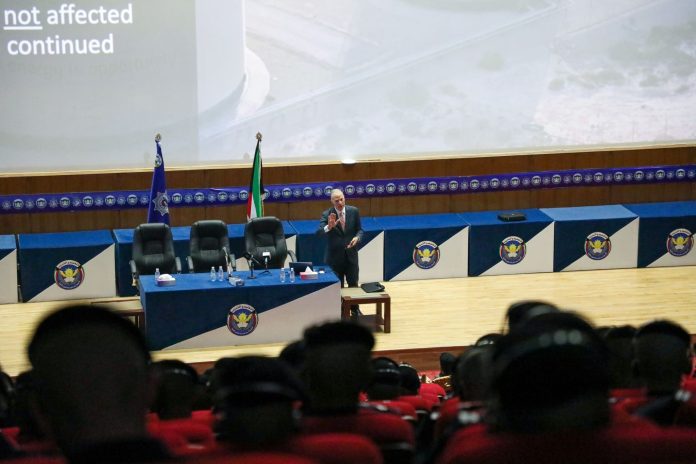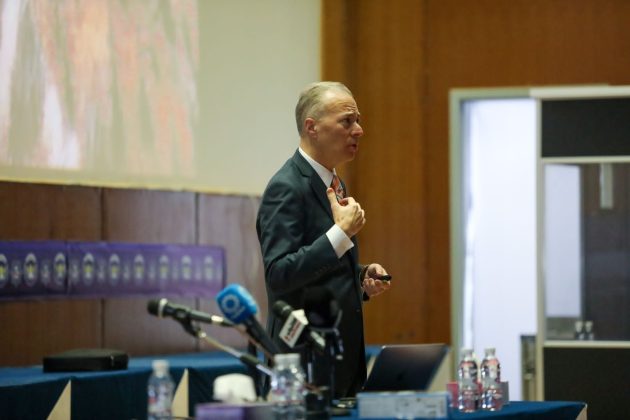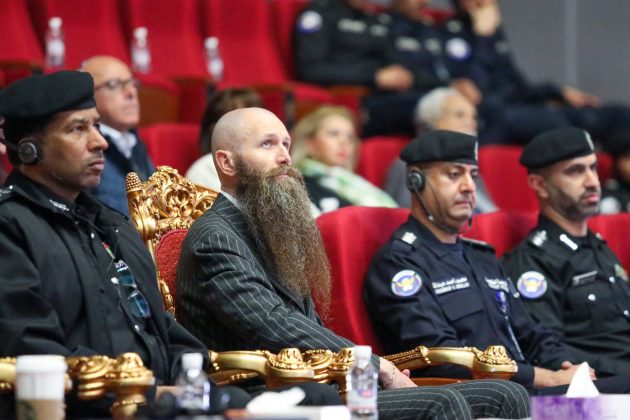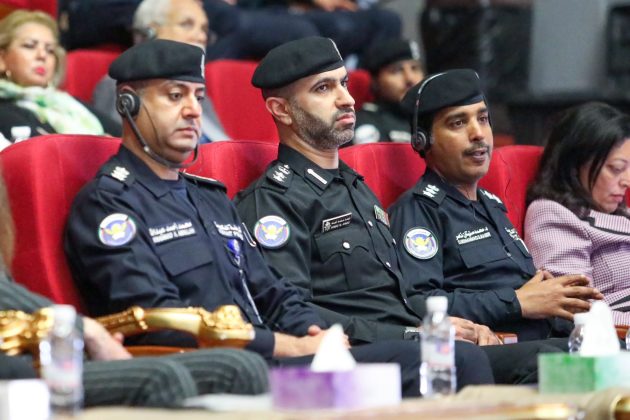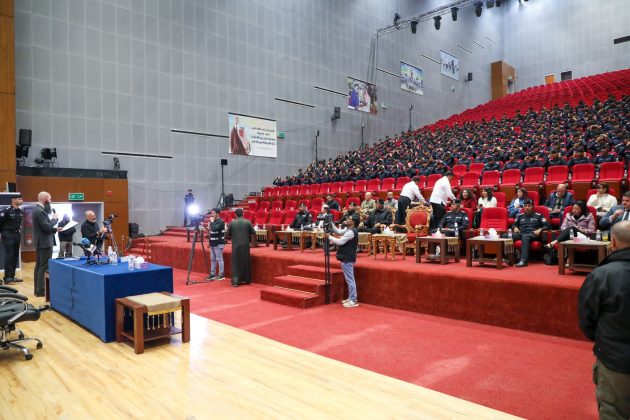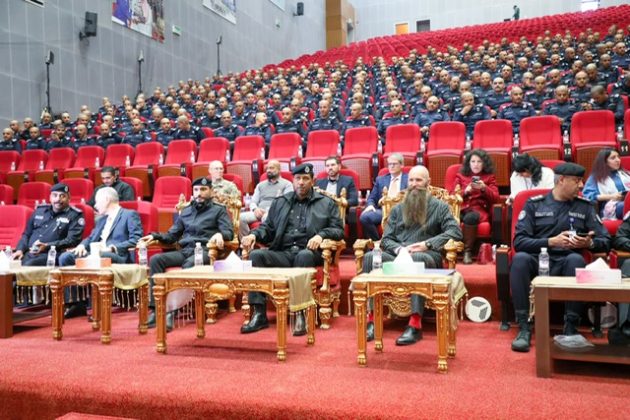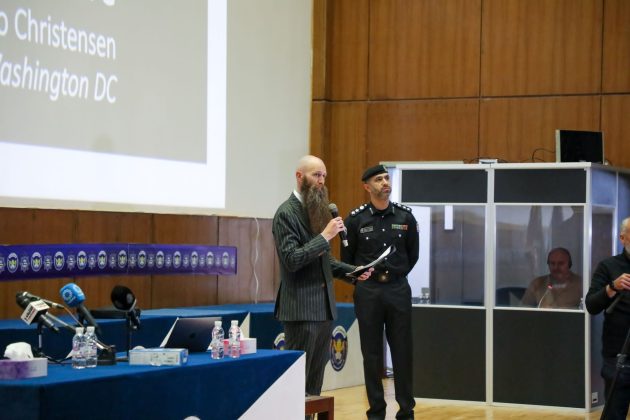The Deputy Director-General of the Saad Al-Abdullah Academy, Brigadier General Ali Jassim Al-Wahib, revealed that the cybersecurity course will be included in the subjects of the Academy soon, at the beginning of next year, saying discussions in this regard with the security authorities are ongoing.
This came in a statement issued to reporters by Brigadier General Al-Wahib on the sidelines of the inaugural session of a three-part series of cybersecurity lectures, organized by the US Embassy in cooperation with the Academy, reports Al-Rai daily.
Speaking in the presence of the US Chargé d’Affairs Kuwait James Holtsnider and cybersecurity expert Guillermo Christensen, yesterday evening at the Academy’s headquarters, Al-Wahib added that the aim of the lecture is to diversify the cultural and educational cooperation between the United States and the Sa’ad Al-Abdullah Academy, pointing to the existence of previous cooperation in his regard and disclosed 3 students from the academy were sent to the US to learn about life in America and the American constitution, and 3 other students will also be sent, and the cooperation continues between the two countries.
In turn, Holtsnider confirmed that cooperation in the field of cybersecurity is one of the aspects of security cooperation between the United States and Kuwait, pointing out that it is no longer a secret to anyone that during 2023 threats in this field increased.
He told the media, that “we are cooperating with the Kuwaiti side to develop our capabilities in the field of cybersecurity, and we exchange and share information in this regard, indicating that bringing experts in this field to give specialized lectures is one form of cooperation.”
He added that the Embassy is cooperating with many Kuwaiti government agencies and companies in this field in order to develop cyber security in Kuwait through American technology.
For his part, Christensen reviewed during yesterday’s session, which he delivered in front of about 320 students of the academy, “the history of cybersecurity” from World War I to the present day, noting that “cybersecurity is historically related to the aspect of espionage, and what we see today, whether it is from China or Iran, Russia or other countries that use the Internet to attack other countries, by criminals from these countries, which is something that is repeated daily in Western countries.
He said, “My mission is to give information related to cybersecurity and what may happen in the future, especially that we may be victims of cybersecurity without knowing it, especially since the digital system is a fragile system and has not been designed in a way that can confront attacks on our devices,” stressing However, “If we do not want to be hacked, we have to think like hackers think, and we have to be prepared for a lot of attacks.”
Christensen giving an example said, “In the month of Ramadan of the year 2012, Iranian hackers sent a phishing email to an engineer working for Saudi Aramco, and destroyed more than 30,000 computers, and disrupted the industrial control system for the fuel pumps, the excavator system, and the machines that extract oil from the ground for a certain period of time.”
Christensen concluded his speech by saying: “Cybercrimes lead to the existence of markets and bazaars in which weapons are purchased, and weapons can be designed to attack specific sites or networks,” noting that “there are hackers working for governments, and there are those who work to make a profit.”
In response to a question about his assessment of Kuwait’s ranking third in the Gulf in the list of countries most targeted by cyber attacks in the GCC countries, according to the global report published by Group-IB, a company specializing in cybersecurity services, Christensen said that there is great progress and development in this field in Kuwait.
He added, “My advice to Kuwait is the same advice that I give to my government, which is to work more quickly so that the situation does not get worse and the gains do not get much worse.”
He believed that “the danger that lurks in the region comes from Iran, which is considered a major threat to cyber security, as it is one of the best hacking countries and is very good at penetration.”
It is noteworthy that the lecture at the Sa’ad Al-Abdullah Security Academy was the first among 3 lectures held by the US Embassy in Kuwait, and the second lecture was held yesterday at the American University in Kuwait under the title “Adapting to Future Threats.

